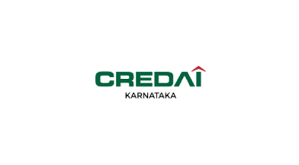As the 2024 Maharashtra Assembly Elections draw closer, the political stage is abuzz with strategizing as parties vie for voter support. Key factors shaping these strategies include caste configurations, religious ties, and voting patterns from previous elections. Notably, the Mahavikas Aghadi (MVA) is contemplating appointing a Muslim deputy chief minister, a calculated move aimed at consolidating the Muslim vote—a demographic that has shown strong support for the alliance in constituencies with significant Muslim populations.
Parties are also implementing a broader strategy to appeal to a diverse electorate. Initiatives like free education for girls and various environmental projects showcase a multi-dimensional approach designed to resonate with voters. Additionally, collaborations with Bollywood celebrities and the proposal to honor Ratan Tata with the Bharat Ratna illustrate a blend of policy and popular influence, aiming to capture the public’s interest ahead of these critical elections.
In recent elections, such as those in Haryana and Jammu & Kashmir, Muslim voter support for Congress has been evident. For example, all Congress MLAs elected in Jammu and Kashmir were from the Muslim community, highlighting the party’s connection with Muslim voters. This trend emphasizes the significance of this demographic in the upcoming Maharashtra elections, as seen by the substantial Muslim turnout against the Mahayuti alliance in areas like Dhule and parts of Mumbai.
The BJP, however, has been critical of Congress’s perceived focus on Muslim voters, with leaders like Amit Malviya accusing the party of “pandering” and likening it to “the new Muslim League.” This criticism points to a polarized electorate, with Hindu voters leaning towards the BJP, particularly in Jammu, while Muslim voters in the Kashmir Valley prefer Congress and the National Conference. This polarization underscores how religious affiliations can shape voting preferences.
Hindu voter loyalty, especially those formerly supporting Uddhav Thackeray, appears to be shifting towards Eknath Shinde, prompting the Mahavikas Aghadi to re-evaluate its need to secure Muslim support. Both Thackeray’s party and Sharad Pawar’s NCP have traditionally enjoyed substantial backing from Muslim-majority regions. Some Muslim leaders have called for increased legislative representation, requesting as many as 40 seats to prevent a shift of the community’s support towards parties like the MIM or Vanchit Bahujan Aghadi.
Amidst these strategic recalibrations, controversies have also surfaced, such as calls for the arrest of individuals allegedly offending Hindu sentiments and opposition to the Waqf Amendment Bill. These issues have stirred political debates, likely influencing the MVA’s approach towards Muslim voters, including the potential nomination of a Muslim deputy chief minister.
Meanwhile, the NDA government has announced development projects worth ₹7,600 crore for Maharashtra and highlighted tributes to Ratan Tata by top leaders, including PM Modi and Fadnavis. This suggests a coordinated effort to sway voter sentiment and build alliances as the elections loom closer.
With Maharashtra’s political landscape rife with strategies surrounding religious affiliations, caste equations, and previous voting patterns, the upcoming elections promise to be a complex battle. As parties navigate these dynamics, the voters hold the ultimate power to shape the state’s political future in 2024.
Source: https://www.oneindia.com/mumbai/maharashtra-assembly-elections-caste-dynamics-strategies-011-3959469.html
 Newspatrolling.com News cum Content Syndication Portal Online
Newspatrolling.com News cum Content Syndication Portal Online







